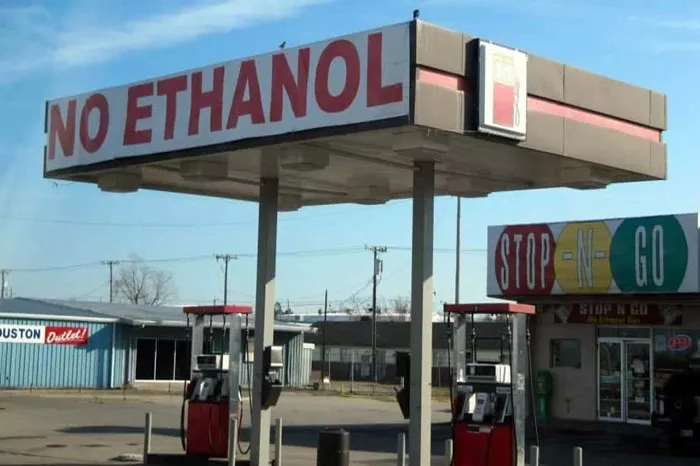Ethanol-free gasoline, often referred to as pure or non-ethanol gasoline, is a type of fuel that does not contain ethanol, an alcohol commonly added to gasoline. This guide will delve into its definition, use, availability, advantages, disadvantages, environmental impact, regulations, performance comparison, and user reviews. By the end, you will have a thorough understanding of ethanol-free gasoline and its implications.
Definition and Use of Ethanol-Free Gasoline
Ethanol-Free Gasoline Defined
Ethanol-free gasoline is fuel that does not contain ethanol, which is typically used to oxygenate gasoline to reduce air pollution. Most gasoline sold in the United States contains up to 10% ethanol, known as E10. Ethanol-free gasoline, however, is pure petroleum-based fuel without the ethanol additive.
Common Uses of Ethanol-Free Gasoline
Ethanol-free gasoline is often used in various types of engines and equipment, including:
Marine Engines: Boats and other marine vessels often use ethanol-free gasoline because ethanol can absorb water and lead to engine issues.
Small Engines: Lawn mowers, chainsaws, and other small equipment benefit from ethanol-free gasoline as it prevents fuel system corrosion and clogging.
Classic Cars: Older vehicles designed before the widespread use of ethanol-blended fuels often run better on ethanol-free gasoline.
Aircraft: Certain small aircraft also require ethanol-free gasoline to avoid the potential damage ethanol can cause to sensitive engine components.
Availability of Ethanol-Free Gasoline
Where to Find Ethanol-Free Gasoline
Finding ethanol-free gasoline can be a challenge depending on your location. However, several resources and retailers specialize in providing this type of fuel.
Gas Station Brands: Some gas station chains offer ethanol-free options. Brands like Shell, Marathon, Exxon, and Chevron are known to carry ethanol-free gasoline at select locations.
Retailers: In some regions, specialty fuel retailers and marine supply stores also stock ethanol-free gasoline.
Online Resources: Websites and apps such as Pure-Gas.org and Ethanol-Free Gasoline Finder help consumers locate stations that sell ethanol-free gasoline.
Local Listings: Checking with local gas stations directly or using community forums can provide leads on where to find ethanol-free gasoline.
Advantages of Using Ethanol-Free Gasoline
Benefits for Specific Engines
Improved Engine Longevity: Ethanol can attract moisture, leading to corrosion and damage over time. Ethanol-free gasoline eliminates this risk, enhancing engine life.
Better Fuel Stability: Ethanol-free gasoline has a longer shelf life, making it ideal for seasonal equipment and vehicles that are not used regularly.
Increased Efficiency: Engines running on ethanol-free gasoline often exhibit better fuel efficiency and performance, as ethanol has lower energy content than pure gasoline.
Reduced Maintenance Costs: Using ethanol-free gasoline can result in fewer repairs and maintenance issues, especially in small engines and older vehicles.
Disadvantages of Ethanol-Free Gasoline
Challenges and Drawbacks
Higher Cost: Ethanol-free gasoline is typically more expensive than ethanol-blended fuels due to its production and distribution costs.
Limited Availability: Depending on your region, finding ethanol-free gasoline can be challenging as not all stations carry it.
Environmental Concerns: While ethanol-free gasoline is better for certain engines, it does not have the same environmental benefits as ethanol-blended fuels, which help reduce emissions.
See also: What Is Ethanol Fuel?
Environmental Impact of Ethanol-Free Gasoline
Comparing Ethanol-Free and Ethanol-Blended Gasoline
Emission Reductions: Ethanol in gasoline helps reduce greenhouse gas emissions by providing a cleaner burn. Ethanol-free gasoline lacks this benefit, potentially leading to higher emissions.
Production Impact: The production of ethanol-blended gasoline supports the agricultural sector by using crops like corn. Ethanol-free gasoline relies entirely on petroleum, impacting energy independence and agricultural markets.
Regulations and Standards
Laws and Guidelines on Ethanol Content
Federal Regulations: In the United States, the Renewable Fuel Standard (RFS) mandates the inclusion of renewable fuels like ethanol in gasoline to reduce dependence on fossil fuels.
State Regulations: Some states have additional regulations regarding ethanol content, influencing the availability and use of ethanol-free gasoline.
Labeling Requirements: Gas stations are required to label pumps clearly if the gasoline contains ethanol, helping consumers make informed choices.
See also: Most Expensive Fuel In The UK
Performance Comparison
Ethanol-Free vs. Ethanol-Blended Gasoline
Engine Performance: Ethanol-free gasoline often provides better performance for specific engines, including smoother operation and fewer starting issues.
Fuel Efficiency: Pure gasoline can deliver better mileage compared to E10 or E15 blends, as ethanol contains less energy per gallon.
Storage Stability: Ethanol-free gasoline is less likely to deteriorate over time, making it suitable for long-term storage.
User Reviews
Experiences with Ethanol-Free Gasoline
Users of ethanol-free gasoline have shared various experiences and reviews, highlighting both positive and negative aspects.
Positive Reviews: Many users praise ethanol-free gasoline for improving the reliability and performance of their engines, particularly in small equipment and classic cars. Marine enthusiasts often highlight the benefits in preventing water-related engine issues.
Negative Reviews: The primary complaints revolve around the higher cost and difficulty in finding ethanol-free gasoline. Some users also note that the environmental benefits of ethanol are a significant trade-off.
Conclusion
Ethanol-free gasoline serves a critical role in maintaining the performance and longevity of certain engines and equipment. While it offers numerous advantages, including improved efficiency and reduced maintenance, it comes with drawbacks such as higher costs and limited availability. Understanding the environmental impact and regulatory landscape can help consumers make informed decisions about their fuel choices. User reviews further emphasize the practical benefits and challenges of using ethanol-free gasoline, providing a well-rounded perspective on this alternative fuel option.
Related topics:
3 Reasons Why Did Opec Cut Oil Production In 1973

